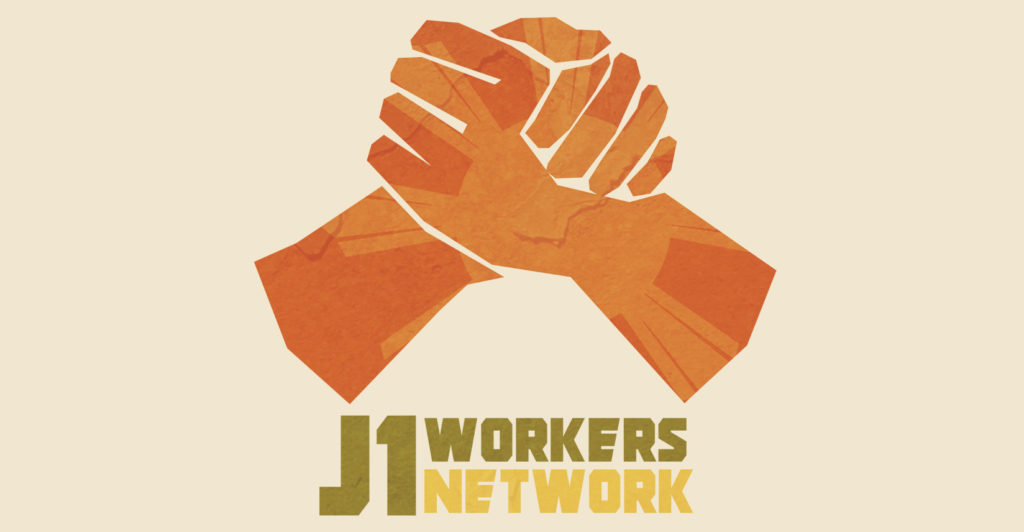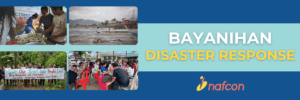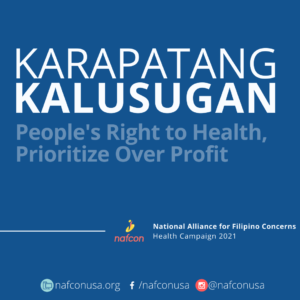
Who are J-1 Workers?
J-1 workers are foreign hospitality workers in the US, majority of whom were recently laid off while others have had their hours cut due to the pandemic. Many did not finish their program while some did not even get to start. With no savings, needing to pay off debt they incurred from excessive program fees, and afraid of potential health risks posed by traveling, they are hesitant to fly back home at this time. Let us support the J-1 workers!
How Can We Support the J-1 Workers?
- Sign this online petition of the J1 Workers Network and share it with family and friends to show them our wide and powerful community support of their fight for justice: bit.ly/j1petition
- Sign up to be a supporter here (bit.ly/J1CommunitySupport) and indicate ways you would like to help including:
- Sharing the open letter of the J1 Workers Network on Facebook
- Donating
- Volunteering, etc

Grocery Deliveries for J-1 Workers in Texas 
Grocery Deliveries for J-1 Workers in Texas 
Grocery Deliveries for J-1 Workers in Utah 
Grocery Deliveries for J-1 Workers in Utah 
Background
Since the National Alliance for Filipino Concerns (NAFCON) launched the Bayanihan Response to COVID-19 Campaign, we have been assisting J-1 Filipino hospitality workers across the US who were laid off en masse due to the closure of almost all of their hotels and other workplaces. During this difficult and uncertain time and unable to return home, they have been neglected and abandoned in the U.S. by their visa sponsors, recruitment agencies, and the Philippine government in particular.
Hundreds of J-1 workers came together to form the J-1 Workers Network to voice out their concerns, grievances, and demands. Attached is the Open Letter of the network sharing their situation and their demands for immediate assistance and protection.
After the Network requested a meeting with the Philippine embassy to provide financial support through its “Assistance to Nationals” fund and other support they urgently needed, the embassy declined to meet with them. Instead they requested that the J-1 Workers continue to contact the consulates individually, which hundreds of them had repeatedly done to no avail. The J1 Workers Network held a press conference to continue to raise their voices and expose the heartless and inadequate response of the Philippine embassy:
WATCH: J-1 Workers Network Press Conference, “Hundreds of Exploited Filipino J-1 Workers Denounce Abandonment by Philippine Government, Recruiters and Visa Sponsors”

On May 13, hundreds of abandoned J-1 workers of the national J-1 Workers Network held a press conference to vent their frustrations on the Philippine government’s inadequate response to their plight. After waiting three weeks with no response to an open letter sent to the Philippine government appealing for support, protection and accountability, the Network requested a meeting with the Philippine Embassy. The embassy finally responded, denying their request for a follow up meeting. Through the press conference, J-1 workers shared stories about their sudden termination due to the COVID-19, as well as the hardships they faced even before the pandemic.
Many J-1 workers faced immediate termination as a result of business closures due to the pandemic. Mary Lee Camello, a J-1 worker based in Hot Springs, Virginia, stated, “It started with the sudden termination of J-1 workers. We were only informed verbally through a phone call while others heard through video chat or from their co-workers.” Left without income, and still indebted because of steep program fees, she and her co-workers reached out to their visa sponsors and Philippines-based recruitment agencies. They advised them to return home despite not even having money for a plane ticket back.
In early April, Filipino J-1 workers like Camello came together and formed the J-1 Workers Network, bound together by the shared experiences they have had. “We formed the Network to provide support to each other and to voice out our concerns,” said Jathniel Caballero, a member of the Network based in Dallas, Texas.
After receiving the Philippine Embassy’s refusal to meet with the Network, Kris Canlas, a J-1 worker based in Davenport, Florida said, “We have reached out multiple times. They always say, ‘send us your contact information and narrative of your experience.’ Their response is repetitive, as if they are just prolonging the process.” She continued, “They also always point out that our request for funds will still be evaluated, meaning there is still no guarantee that we will receive help from them.”
Even before the pandemic, many J-1 workers were receiving little to no cultural exchange and their host companies would not follow their internship and training plans, despite these being promises of the J-1 program. Many were already experiencing violations, harassment and discrimination in the workplace. Sheena Reyes from Dallas shared, “They would make us work all around in different departments and stations, sometimes with no breaks, and then they would change our time cards so they would not have to pay for all our hours. Some would give us false write-ups and twist the story. And worst of all, we were being intimidated because we have no right or power to speak for ourselves. There were threats that if we keep speaking up against the discrimination and harassment, that we would be sent back home to the Philippines.”
Nap Pempeña of Migrante USA, a supporting organization of the Network, emphasized the systematic export of Fiipino labor by the Philippine government as a big factor that makes young students vulnerable to trafficking. “The inadequate government support and the stories of exploitation bring up the long-standing problem in the Philippines where migrant workers are seen as a commodity to be sold and to be profited from,” Pempeña asserted. “And now, even our youth are being funneled into this labor export scheme through these exploitative internships and work-study programs abroad.”
Speaking to this profit-driven industry, J-1 workers outlined the steep recruitment fees they had to pay to the recruitment agencies, as well as other illegal business practices. Jorizza Garcia from Dallas recounted, “When we were at the local agency’s office back in Manila, we were told by the personnel to sign the page where our parent or guardian was supposed to sign. They even instructed us to tell the embassy during our visa interview that we only paid $3,500 to the recruitment agency even though we paid more than that.”
Community supporters across the country have been supporting hundreds of J-1 workers not only by assisting them with their immediate needs, but also through know-your-rights trainings, legal assistance and education on trafficking. Aurora Victoria David of the National Alliance for Filipino Concerns stated, “It is also important to empower the J-1 workers. That the J-1 workers know and understand that they have rights, and that they can make informed decisions based on knowledge of their rights and options.”
“Ang kabataan ang pag-asa ng bayan (the youth is the future of our nation),” ended Camello, quoting a famous Tagalog phrase. “We do believe in ourselves that we will be able to contribute something good for the betterment of our country. But how can we do that if there’s no support given by our government?”



